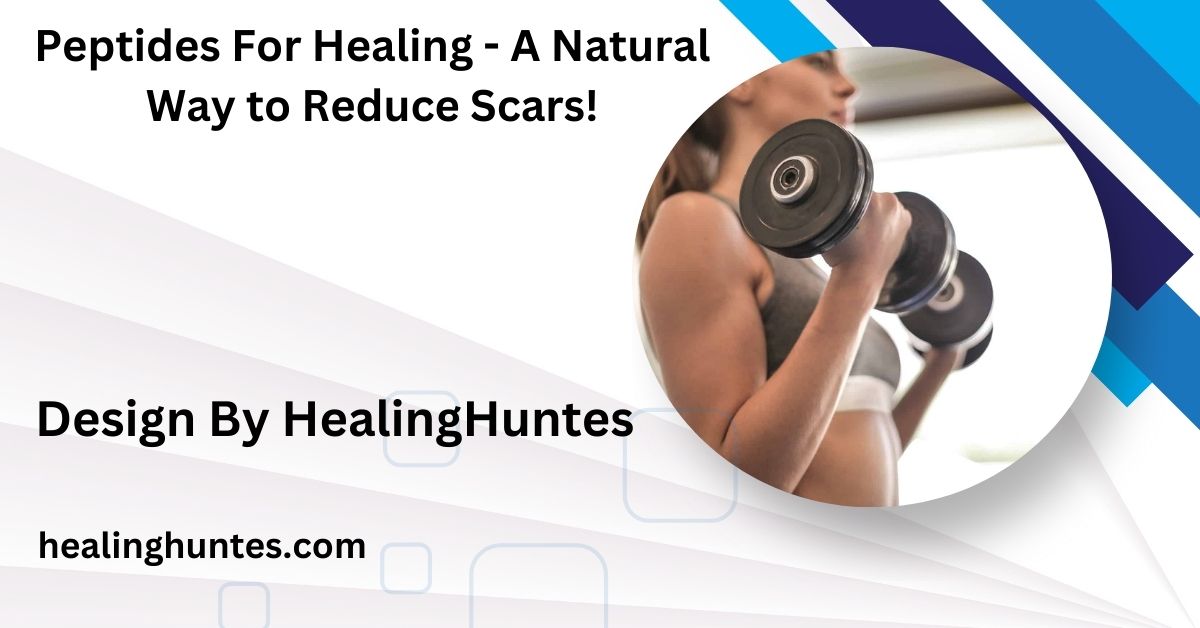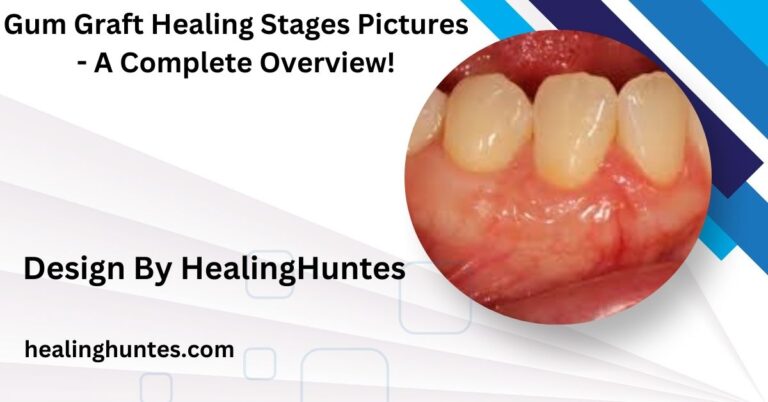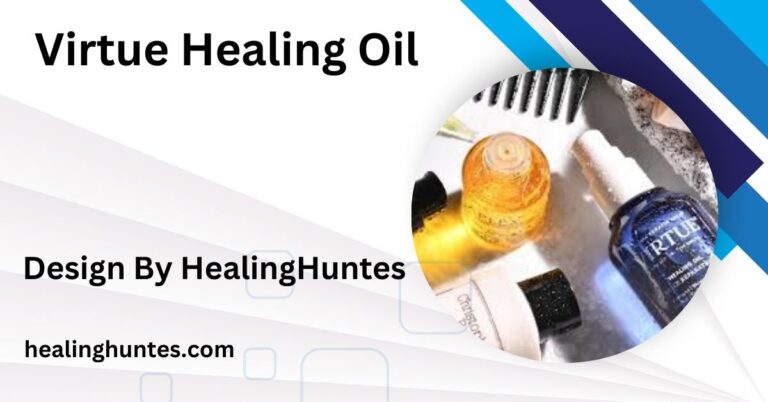Peptides For Healing – A Natural Way to Reduce Scars!
Peptides accelerate healing by promoting cell regeneration, collagen production, and inflammation reduction, aiding in quicker recovery from injuries, wounds, and skin damage.
This article will explore how peptides contribute to healing, their different types, and how they can be used to accelerate recovery.
What Are Peptides:

Peptides are short chains of amino acids that play a vital role in many biological functions, including tissue repair and immune response. In the human body, they can serve as messengers, signaling cells to perform specific actions like regeneration and collagen production. Peptides are integral in repairing damaged tissues, reducing inflammation, and supporting overall healing.
Types of Peptides in Healing:
- Collagen Peptides: Aid in improving skin elasticity and repairing connective tissues, essential for skin regeneration and wound healing.
- Growth Factor Peptides: Promote tissue regeneration, support cell proliferation, and accelerate recovery in muscle, skin, and other tissues.
- Anti-Inflammatory Peptides: Help reduce inflammation, swelling, and pain, providing relief during the healing process.
- Antimicrobial Peptides: Protect against infection at the site of injury by preventing bacterial growth and supporting the immune system.
- Signal Peptides: Stimulate collagen synthesis and tissue repair by sending signals to cells to regenerate damaged tissues.
How Do Peptides Promote Healing:
Peptides accelerate the healing process by stimulating the production of essential proteins and growth factors. For tissue repair, peptides promote cell growth and regeneration, enabling quicker recovery from injury. By triggering the body’s natural healing responses, peptides help restore damaged tissues more efficiently. In addition to promoting tissue repair, peptides can help reduce pain and inflammation, making them an effective solution for both injury recovery and cosmetic purposes.
Peptides and Collagen Production:
Collagen is a crucial protein for skin, muscle, and connective tissue repair. Certain peptides directly stimulate the production of collagen, which is vital for tissue regeneration. Collagen peptides help improve the integrity and structure of damaged skin, supporting faster recovery.
Also Read: How Long Does It Take To Heal A Fracture Hand – A Complete Guide!
Peptides in Wound Healing:
Peptides play a crucial role in accelerating the healing of wounds by promoting tissue regeneration and reducing inflammation. Collagen peptides are particularly effective in healing wounds by stimulating collagen production at the site of injury. Growth factor peptides enhance cell regeneration, which helps speed up healing for chronic wounds or post-surgery recovery. By supporting tissue repair and reducing infection risks, peptides provide a holistic approach to wound healing.
Topical vs. Injectable Peptides for Wound Healing:
Topical peptides, often found in creams and gels, can be applied directly to the wound site for localized treatment. These peptides provide a concentrated dose of healing compounds, speeding up the repair of damaged skin. Injectable peptides, on the other hand, can target deeper tissue layers for more significant recovery, especially in cases of muscle or internal injuries.
Peptides in Muscle Recovery:

Peptides have gained popularity in sports and physical therapy due to their ability to promote muscle recovery and repair. Peptides like BPC-157 and TB-500 stimulate growth factors, which are essential for muscle tissue regeneration. These peptides not only speed up recovery but also help reduce inflammation and pain, making them ideal for athletes or those recovering from muscle injuries.
Peptides for Post-Workout Recovery:
For athletes, peptides can be used as part of a post-workout recovery routine to accelerate muscle repair. After intense physical activity, the muscles experience microtears that require repair and regeneration. By using peptides like TB-500, athletes can help speed up this process, reducing muscle soreness and preventing long recovery times. This allows athletes to train harder and recover faster, leading to better performance in future workouts.
Peptides for Skin Healing and Anti-Aging:
Peptides are widely used in skincare products due to their ability to support collagen production, which is essential for healthy, youthful skin. By promoting collagen synthesis, peptides help reduce the appearance of wrinkles and fine lines, improving skin elasticity and texture. Peptides are also effective in treating scars, burns, or other skin injuries by enhancing the skin’s natural healing abilities.
Peptides in Anti-Aging Products:
Many anti-aging skincare products contain peptides as a core ingredient due to their collagen-boosting properties. Peptides stimulate the skin to produce more collagen, leading to firmer, more youthful skin. They also help reduce the appearance of fine lines, wrinkles, and sagging by improving skin elasticity.
Also Read: How Long Does It Take To Wisdom Teeth To Heal – A Comprehensive Guide!
How to Use Peptides for Healing:
Peptides can be administered through topical treatments, oral supplements, or injections, depending on the area of healing. Topical peptide creams and gels are ideal for treating skin injuries or surface wounds, allowing direct application to the damaged area. For muscle recovery or deeper tissue healing, injectable peptides may be required to reach the affected area effectively.
Choosing the Right Peptide for Your Healing Needs:
The choice of peptide depends on the specific type of injury or healing required. For skin healing, collagen peptides are most effective, while growth factor peptides are better suited for deeper tissue repair and muscle recovery. Anti-inflammatory peptides are ideal for reducing swelling and pain, making them useful for general recovery. It’s important to consult with a healthcare provider to choose the most appropriate peptide for your healing process.
Benefits of Using Peptides for Healing:

Peptides offer numerous benefits when it comes to healing, from faster recovery to improved tissue regeneration. By promoting collagen production, peptides help repair skin and connective tissues, reducing scarring and improving the overall appearance of damaged areas. Peptides also play a crucial role in reducing inflammation, easing pain, and supporting muscle regeneration.
Additional Benefits of Peptides:
- Pain Relief: Peptides can help reduce pain by alleviating inflammation and promoting the healing of injured tissues.
- Scar Reduction: Collagen peptides help reduce scarring by stimulating collagen production, leading to smoother skin.
- Infection Prevention: Antimicrobial peptides help protect healing wounds from infection, ensuring a clean recovery.
- Improved Mobility: By aiding in muscle repair, peptides improve mobility and flexibility, reducing recovery time for athletes and those with muscle injuries.
Risks and Considerations:
While peptides offer numerous benefits, it is essential to use them appropriately. Overuse or improper administration can lead to side effects such as allergic reactions, irritation, or skin sensitivities. It is important to follow the recommended dosages and seek professional guidance when using peptides, especially injectable forms. Always consult with a healthcare provider to ensure that peptides are used safely and effectively in your healing process.
Proper Use of Peptides:
To ensure safety, peptides should be used according to the guidelines provided by a healthcare professional. Whether used topically or through injections, it’s important to follow dosage recommendations and never exceed the advised amount. Overuse can lead to adverse effects and may hinder the healing process rather than support it.
FAQ’s
1. How do peptides help with healing?
Peptides promote cell regeneration, boost collagen production, reduce inflammation, and accelerate tissue repair, helping to heal wounds and injuries more effectively.
2. Are peptides effective for both skin and muscle recovery?
Yes, peptides are versatile and can be used for both skin healing, such as treating scars, and muscle recovery by promoting tissue repair and reducing inflammation.
3. Can peptides reduce scarring?
Yes, collagen peptides specifically stimulate collagen production, which helps reduce scarring and improves the appearance of healed skin.
4. Are there any side effects of using peptides for healing?
While generally safe, overuse of peptides or improper administration may cause allergic reactions or irritation. Always consult a professional before using peptides.
5. How long does it take to see results from peptide therapy?
The time to see results depends on the type of injury and peptide used, but most individuals notice improvements within a few weeks to months.
Conclusion
Peptides are highly effective in accelerating healing, whether for wound recovery, muscle repair, or skin regeneration. They stimulate tissue regeneration, reduce inflammation, and support faster recovery times while minimizing scarring. Incorporating peptides into your healing regimen can significantly enhance overall tissue health. However, it’s essential to consult with a healthcare provider to ensure proper usage and fully benefit from peptide therapy for optimal results and safety.






